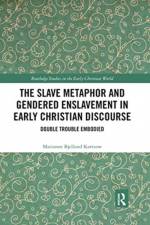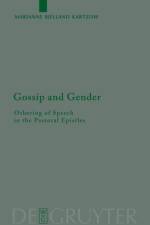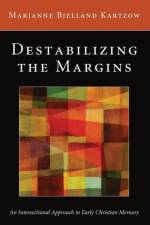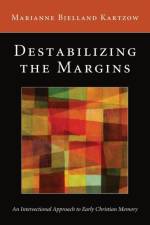von Marianne Bjelland Kartzow
47,00 €
Description:In this book Marianne Bjelland Kartzow suggests that ideas taken from recent discussions of multiple identities and intersectionality, combined with insights from memory theory, can renew our engagement with biblical texts. Some marginal early Christian passages, and what the scholarly community has reconstructed of their historical contexts, are encountered, looking for alternative ways these texts can produce meaning. A fresh look at some marginal biblical figures--such as male and female slaves who are beaten by a fellow slave, the queer figure of the Ethiopian eunuch, foreign Egyptian women, rebellious widows, or a possessed fortune-telling slave girl--can help biblical users to talk in more critical and creative ways about responsibility, identity, injustice, violence, inclusion/exclusion, and the intersections of gender, sexuality, race, and class. These perspectives may be relevant for those who see the New Testament as Christian canon or as cultural canon, or as both.Endorsements:""Kartzow has a rare gift for writing highly accessible but theoretically sophisticated prose. Drawing upon memory theory and concepts of intersectionality, Kartzow pays special attention to the marginalized figures in ancient texts, including the neglected female slave . . . This study greatly advances our understanding of the construction of early Christian identities and will be welcomed by scholars, students, and general readers alike.""--Margaret Y. MacDonald, St. Francis Xavier University""Combining an intriguing, multifaceted methodological approach with an urge to make visible those outside our spheres of moral concern, Kartzow convincingly demonstrates her renown as a talented, innovative, and committed biblical scholar."" --Christina Petterson, Australian National University""A deliberate attempt to remember the struggling survivors and hybrid personalities found in the early Christian archives, Destabilizing the Margins shows ''that ideas taken from recent discussions of multiple identities and intersectionality, combined with insights from memory theory, can renew our engagement'' with Christian traditions, as well as challenge contemporary simplifications of life worlds, raising hope for the future.""--Pieter Botha, University of South AfricaAbout the Contributor(s):Marianne Bjelland Kartzow is Senior Research Fellow within the project Jesus in Cultural Complexity at the University of Oslo, supported by the Research Council of Norway. She is the author of Gossip and Gender: Othering of Speech in the Pastoral Epistles (2009).




